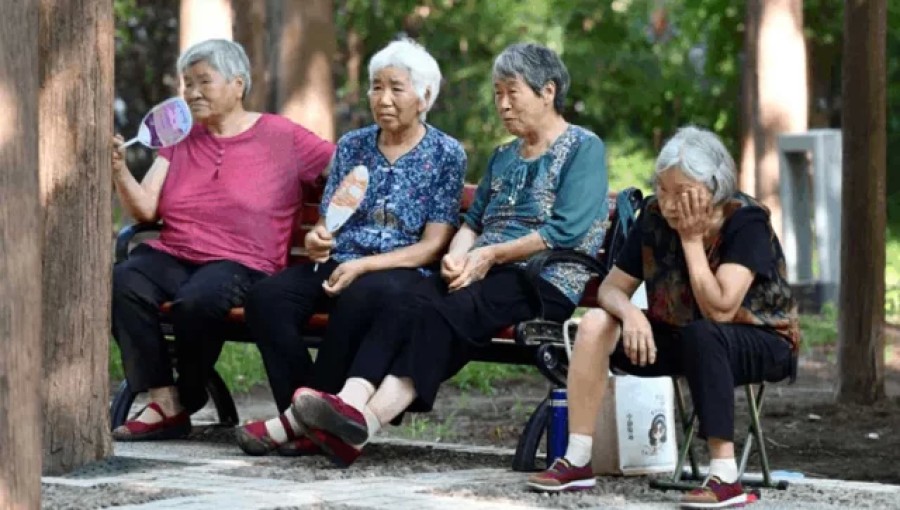Beijing, Sep 14 (V7N)– In response to the increasing number of elderly citizens and the strain on the national pension budget, China has decided to raise the retirement age for the first time since 1950. The change, aimed at addressing the dual challenges of an aging population and financial pressure on the retirement allowance budget, will be implemented gradually over the coming years.
China's top legislature announced on Friday that the retirement age for women in blue-collar jobs will increase from 50 to 55, while women in white-collar roles will see their retirement age rise from 55 to 58. For men, the retirement age will be extended by three years, raising it to 63. These adjustments will take effect step by step, with the new regulations starting from January 1, 2025.
The country, which currently has one of the lowest retirement ages globally, is struggling to manage the growing number of pensioners due to an aging population. This has led to increased pressure on the national budget, with a large portion allocated to retirement pensions.
The gradual increase in retirement age will occur over the next 15 years, ensuring that no one retires before reaching the revised age thresholds. According to the state news agency Xinhua, this move follows a thorough assessment of factors such as life expectancy, population structure, health conditions, education levels, and labor supply. Citizens will also have the option to extend their retirement by up to three years if desired.
The changes have sparked mixed reactions on Chinese social media platforms, such as Weibo. Some expressed skepticism, with one user humorously predicting, "Another bill may come in the next 10 years, which will not allow us to retire until we are 80." However, others felt the move was expected, comparing China's adjustments to the higher retirement ages in European countries where men typically retire at 65 or 67, and women at 60.
The BBC reports that China's population has been declining for the second consecutive year in 2023, as the country’s birth rate falls below its death rate. Despite the population shrinkage, life expectancy has increased to 78.2 years, further supporting the need for pension reform and retirement age adjustments.
END/AJ/SMA































Comment: